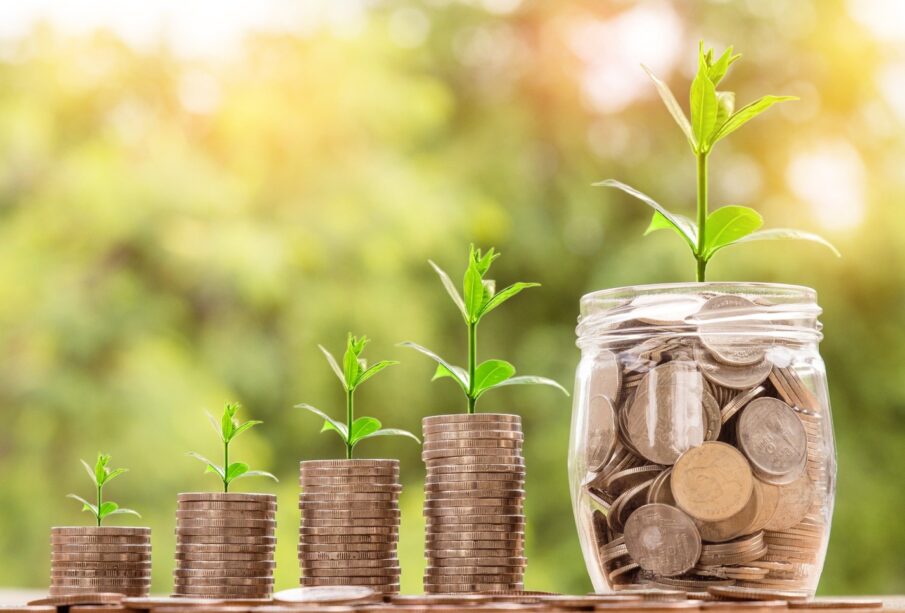How to invest in UAE: Know The Different Investment Option For Expats

The UAE has a liberal business environment and offers tax-free financial opportunities for potential investors.
Expatriates can make the most out of their money by making investments in various schemes. In this article, we focus on the investment options in the UAE for expatriates.
In the UAE, saving money in a bank is not the right choice, and the reason is pretty straightforward. It entails little interest, and with the inflation rate, the interest eventually bears no meaning.
Therefore, you should look for options, such as:
- Real Estate
- Stocks
- Bonds
- Mutual funds
- Funds
- Deposit accounts and e-saver accounts
- Gold
Now, let us see how investments in the work:
Table of Contents
Real Estate
Before you invest in real estate properties, you need to know how the economy is working, as that has a bearing on the future course of your investment.
When it comes to the UAE economy, you can put all your worries to rest as it is among the fastest growing economies in the world. As such, real estate investment in the country is a good option.
You can consider buying real estate in Dubai because it offers a fantastic lifestyle. The city is also a popular tourist destination that increases the value of your property investment.
Property purchases in Dubai pose no problem as there are many properties at different price points.
The good thing is that property prices in the UAE have declined due to the COVID19 pandemic, giving you an excellent opportunity to own property in the country.
Alongside property price declines, banks in the UAE have also increased the loan to value by 5 percent. Meaning, the UAE Nationals can get a loan amount of 85 percent of the property price, and expatriates get 80 percent of the property price.
There is something more to come–the Expo 2020, scheduled to start from October 2021. It is going to impact most sectors in Dubai, including real estate.
Given the key developments and population growth, you can rest assured that purchasing a property in the UAE will entail a good return on investment.
Stocks
Investing in stocks is the next thing to consider that refers to the trading of equity of various companies.
In Dubai, there are two stock exchanges–Dubai Financial Market(DFM) and NASDAQ Dubai.
Dubai Financial Market has become a strong capital market. The exchange trades shares of companies from nearby regions such as Kuwait, Bahrain, Oman, or other Gulf countries. It is regulated by the Securities and Commodities Authority (SCA).
NASDAQ Dubai lists domestic and international companies’ shares and offers trading in Real Estate Investment Trusts(REIT ) and equity derivatives (futures and options).
Located in the Dubai International Financial Centre, the Dubai Financial Services Authority (DFSA) regulates the stock exchange.
Before you jump into stock trading, do adequate research to understand every nook and corner of the market as stocks are volatile investments.
Bonds
Investment in bonds is safer, and bonds are the perfect option for you if you are a risk-averse investor.
The investment entails better returns compared to a certificate of deposit or fixed deposits. Bonds are debt instruments issued by companies and provide interest against them. And you will get the value of the bond upon maturity.
In the context of bonds, there is an exciting thing to note. In Dubai, earning money from interests is considered haram, according to Islamic laws, so bonds are traded in the form of Sukuk. But, some bonds are traded in the conventional western format.
You can easily buy bonds with a minimum of AED 100 and multiples of 100 AED. And, you can redeem them at any exchange after a minimum holding period of 90 days.
Mutual Funds
Mutual funds are cheaper alternative investments and are long-term investments. Fund managers manage mutual funds by collecting money from investors and investing in instruments, such as stocks, securities, bonds, etc.
After a fund collects money from investors, he splits the money into smaller values and invests in different company stocks. The process reduces the risk exposure.
Nevertheless, mutual funds are an excellent investment option, especially for those who want to invest in small amounts.
There is also an option called the Systematic Investment Plan (SIP) in mutual funds. Through SIP, you invest a certain amount of money monthly for a short period. Although it appears like deposits, it is not so because the returns are from dividends and capital gains.
According to the mutual fund type, you can start SIPs at a low cost, as low as USD 200, and start making profits after a specific period.
In the UAE, you can invest in mutual funds through financial institutions like Citibank, HSBC, Standard Chartered, ADCB, Mashreq, CBD, etc.
Funds
The Dubai International Financial Centre offers a variety of options for investing in funds domestic and foreign funds.
You get to invest in different kinds of funds such as equity funds, fixed-income funds, value and growth funds, sector funds, active and passive funds, and Sharia-compliant or non-compliant funds.
Deposit Accounts and E-Saver Accounts
Banks designed these accounts to provide higher returns to the customers. Fixed deposit accounts entail higher interest rates. Banks such as HSBC, Emirates NBD, Mashreq, and ADCB bank offer an e-saver account with a higher interest rate than other savings accounts. These accounts do not come with debit cards, an attempt by the banks to discourage withdrawals.
Gold
Gold can be an excellent investment in Dubai, also called the land of gold, which has good resale value. You can sell it at any time to make a good profit, and it is a safe investment for the long run. However, ensure you make a good market assessment before investing in gold because the market fluctuates daily. Make investments at the right time.
Conclusion
As an expatriate, you have a variety of investment options in the UAE. All you need to understand the instrument and the risks involved in the investment. Real estate investment is, however, almost risk-free.
33 comments
Leave a reply
You must be logged in to post a comment.











… [Trackback]
[…] Read More: glaadblog.org/how-to-invest-in-uae-know-the-different-investment-option-for-expats/ […]
… [Trackback]
[…] There you will find 4973 more Information on that Topic: glaadblog.org/how-to-invest-in-uae-know-the-different-investment-option-for-expats/ […]
… [Trackback]
[…] Here you can find 60061 more Information to that Topic: glaadblog.org/how-to-invest-in-uae-know-the-different-investment-option-for-expats/ […]
… [Trackback]
[…] Find More to that Topic: glaadblog.org/how-to-invest-in-uae-know-the-different-investment-option-for-expats/ […]
… [Trackback]
[…] Info on that Topic: glaadblog.org/how-to-invest-in-uae-know-the-different-investment-option-for-expats/ […]
… [Trackback]
[…] Here you can find 63690 additional Info to that Topic: glaadblog.org/how-to-invest-in-uae-know-the-different-investment-option-for-expats/ […]
… [Trackback]
[…] Read More on on that Topic: glaadblog.org/how-to-invest-in-uae-know-the-different-investment-option-for-expats/ […]
… [Trackback]
[…] Find More Information here on that Topic: glaadblog.org/how-to-invest-in-uae-know-the-different-investment-option-for-expats/ […]
… [Trackback]
[…] Read More on on that Topic: glaadblog.org/how-to-invest-in-uae-know-the-different-investment-option-for-expats/ […]
… [Trackback]
[…] Find More Info here on that Topic: glaadblog.org/how-to-invest-in-uae-know-the-different-investment-option-for-expats/ […]
… [Trackback]
[…] Find More to that Topic: glaadblog.org/how-to-invest-in-uae-know-the-different-investment-option-for-expats/ […]
… [Trackback]
[…] Read More on that Topic: glaadblog.org/how-to-invest-in-uae-know-the-different-investment-option-for-expats/ […]
… [Trackback]
[…] There you will find 57426 additional Info to that Topic: glaadblog.org/how-to-invest-in-uae-know-the-different-investment-option-for-expats/ […]
… [Trackback]
[…] There you can find 65427 more Info on that Topic: glaadblog.org/how-to-invest-in-uae-know-the-different-investment-option-for-expats/ […]
… [Trackback]
[…] Read More on that Topic: glaadblog.org/how-to-invest-in-uae-know-the-different-investment-option-for-expats/ […]
… [Trackback]
[…] Find More to that Topic: glaadblog.org/how-to-invest-in-uae-know-the-different-investment-option-for-expats/ […]
… [Trackback]
[…] Find More to that Topic: glaadblog.org/how-to-invest-in-uae-know-the-different-investment-option-for-expats/ […]
… [Trackback]
[…] Read More to that Topic: glaadblog.org/how-to-invest-in-uae-know-the-different-investment-option-for-expats/ […]
… [Trackback]
[…] Here you will find 22141 additional Information to that Topic: glaadblog.org/how-to-invest-in-uae-know-the-different-investment-option-for-expats/ […]
… [Trackback]
[…] Read More to that Topic: glaadblog.org/how-to-invest-in-uae-know-the-different-investment-option-for-expats/ […]
… [Trackback]
[…] Read More on that Topic: glaadblog.org/how-to-invest-in-uae-know-the-different-investment-option-for-expats/ […]
… [Trackback]
[…] There you will find 74170 more Info to that Topic: glaadblog.org/how-to-invest-in-uae-know-the-different-investment-option-for-expats/ […]
… [Trackback]
[…] Information on that Topic: glaadblog.org/how-to-invest-in-uae-know-the-different-investment-option-for-expats/ […]
… [Trackback]
[…] Information on that Topic: glaadblog.org/how-to-invest-in-uae-know-the-different-investment-option-for-expats/ […]
… [Trackback]
[…] Read More Information here to that Topic: glaadblog.org/how-to-invest-in-uae-know-the-different-investment-option-for-expats/ […]
… [Trackback]
[…] There you can find 5609 additional Info to that Topic: glaadblog.org/how-to-invest-in-uae-know-the-different-investment-option-for-expats/ […]
… [Trackback]
[…] Find More here on that Topic: glaadblog.org/how-to-invest-in-uae-know-the-different-investment-option-for-expats/ […]
… [Trackback]
[…] Read More to that Topic: glaadblog.org/how-to-invest-in-uae-know-the-different-investment-option-for-expats/ […]
… [Trackback]
[…] Find More here to that Topic: glaadblog.org/how-to-invest-in-uae-know-the-different-investment-option-for-expats/ […]
… [Trackback]
[…] There you will find 44956 more Info on that Topic: glaadblog.org/how-to-invest-in-uae-know-the-different-investment-option-for-expats/ […]
… [Trackback]
[…] Here you can find 8188 more Info to that Topic: glaadblog.org/how-to-invest-in-uae-know-the-different-investment-option-for-expats/ […]
… [Trackback]
[…] Here you will find 18792 additional Information on that Topic: glaadblog.org/how-to-invest-in-uae-know-the-different-investment-option-for-expats/ […]
… [Trackback]
[…] Find More here on that Topic: glaadblog.org/how-to-invest-in-uae-know-the-different-investment-option-for-expats/ […]